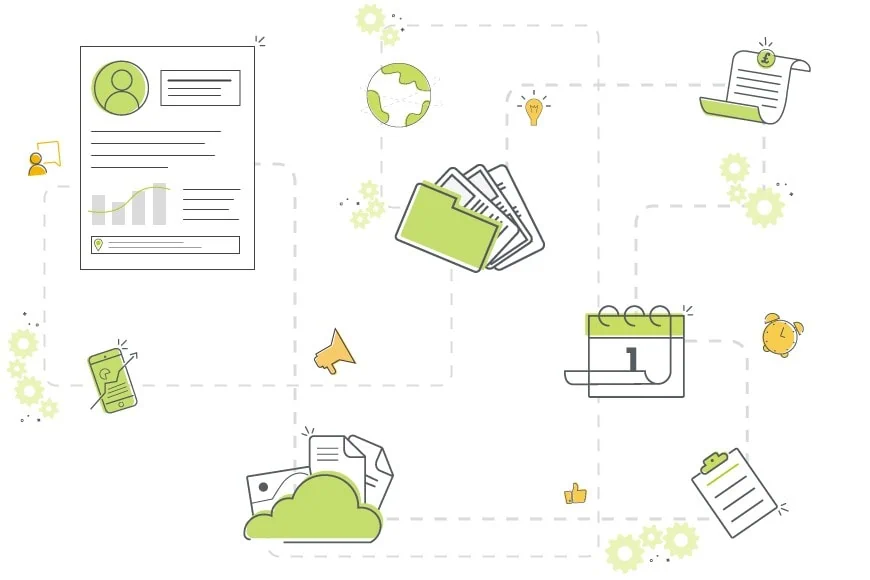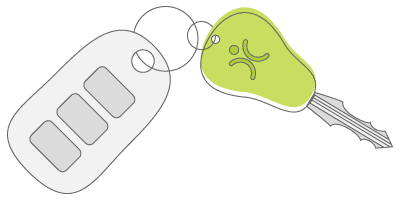Workflow: your CRM system’s management assistant
16 Oct 2023
(Republished from earlier article)
Workflow is one of those features in Open CRM that we talk about all the time. I won’t go so far as to say it is a “cure all.” But it is certainly one of those features that has the potential to be incredibly powerful. In some ways, workflow (and tools like it) really is like having a management assistant embedded within your CRM system.
What do I mean by that? And what even is workflow anyway?
Workflow is a collection of tools that allow you to automate certain jobs based on a change within your CRM system.
Clear as mud, right?
Let me try again.
Think of workflow as having an extra user within your CRM system. That user exists only to do the mundane tasks. Those jobs that everyone else doesn’t want to do or just forget about. Workflow does thinks like:
- update records,
- set warnings,
- create reminders,
- send notifications,
- delete outdated stuff,
- and just generally support the management of your CRM software.

Watch and learn
If you're looking for further information on how specific features and functionality play out in OpenCRM, why not click to check out our webinars?
watch nowDo you really need workflow to manage things?
Short answer…well, no, I guess not. But in the same way, you don’t need copy/paste on your mobile or timers on your oven.
It’s not that the tools within workflow that you use to manage your CRM system are essential. But rather that, without them, the workload for your whole team increases. And that workload includes lots and lots and lots of small jobs that they’ll have to do over and over and over again.
And let me tell you, those kinds of repetitive jobs are both mind-numbing and essential. They are also easy to forget for anyone whose job isn’t focused entirely on them. I could tell you so many stories of new tasks added to my list because a salesperson or building surveyor or business manager kept forgetting to do them.
I’m going to run through a couple of scenarios in this blog. Scenarios where either we (or our customers) have used workflow to solve a particular problem, from data management to sales enablement to delivery of services.
Hopefully, these scenarios will illustrate why workflow is such an amazing feature within Open CRM.
Workflow for Project Management
This is not actually a “specific” example. It’s more of an amalgamation of several project management workflows that I have either set up or am aware of.
In this scenario, let’s say we have a very particular type of project that always has the same general task list. And these tasks need to be completed by a set date.
So we start setting up the workflow to “trigger” when a Project has a particular type, let’s say “version release.” But we don’t actually want to kick it off until the release date has been finalised.
Setting the condition
That means we add another requirement to this trigger, setting the status from “planned” to “schedule” for example. Only Projects with both these fields set as described will actually trigger our Workflow.
Action 1
Whenever a Project with that type is saved, the first thing that happens is the creation of a flurry of Activities. This is done by using Workflow to Trigger an Action Plan. Each of these Activities is assigned to the correct person and scheduled based on the “Target End Date.” This means they can be scheduled 2 days before that date, 4 weeks before, etc.
See our Tuesday Tip video to learn more about Action Plans.
Action 2
Then a notification is sent to an MS Team Channel. This notification alerts the whole team who usually works on these types of Projects.
Action 3 and dependant Workflow
We could also update all linked Projects to a particular status and other fields, if we were managing these as subprojects. So when the status on the main Projects was updated to “In Beta”, workflow can copy the “Target End Date” to a dedicated field to hold the “Release Date” on these subprojects.
With those field changes, we could even have another bit of Workflow on these subprojects. We could add warnings to these Projects and send notifications to their project managers…oh there are so many options!
You can see with this example that, a single piece of Workflow within your CRM system can do a lot of management support on its own. But it can also be used to trigger dependent or cascading Workflows.

Want to take it for a test ride?
Nothing compares to trying out a piece of kit for yourself. Click to sign up for a free trial and see if OpenCRM has the look and feel (as well as the features and functionality) that you're looking for.
try it outIf you’re interested in other ways you can use workflow to manage your Projects, why not watch this Tuesday Tip video.
Keeping Sales on Track with Workflow
There is something about sales teams and CRM systems, isn’t there? So many articles are out there about how CRM can help sales, but just as many are about trying to get your sales team to use your CRM.
I personally think a lot this stems from the fact that CRM systems run on data and details…the more, the better. And sales teams run on building relationships. Now CRM systems are, of course, great for documenting and supporting these relationships. But only when the data is entered into them. And that’s where it all starts to fall down.
So how can Workflow help with this management puzzle?
For starters, little things like sending notifications when information is missing (or needs additional confirmation) can go a long way toward helping people stay on track. You could also add warnings on Contacts and/or send notifications to the account manager when an email address bounces.
One of the big wins when you use Open CRM is the ability to copy information from one record to another. And sales is one of those places where this has the potential to make life a lot easier.
Let’s say you’ve got a system whereby the Company record is only really useful to the accounts team. Maybe the sales team relies exclusively on their individual Contacts to manage things.
You still want those salespeople to have relevant information easily accessible, but you just know they aren’t looking at the Company record.
Setting the condition
In this case, you could set a trigger on a Company record for whenever the balance field changes.
That indicates, in your processes, that something is going on from an accounts point of view that you think your sales team should be aware of.
Action 1
As soon as that balance field changes, you could have specific fields from the Company copied across to the linked Contacts. Let’s say the balance, overdue balance, credit limit, and maybe some custom fields like account status and assigned account manager.
Now your sales team knows what the situation is and who they should talk to about it.
Action 2 (dependant workflow)
Being clever here, you could then set up a dependent workflow to set a warning or send a notification to the salesperson if these fields are updated with specific values.
For example, if the overdue balance is greater than £2000 and the account status is “first warning”.
So now it’s not about waiting for your sales team to notice a change. They’ve been directly alerted when one of their customers is in trouble with your accounts team.
Data retention
I don’t want to go into the details of this here. We’ve got lots of information about managing data retention using workflow for GDPR requirements, but wanted to mention it.
Being able to automatically trigger data retention rules (which are like an extra powerful bit of workflow) is an essential part of your account management process. Getting rid of personal data that is outdated or that you no longer need also means your sales team isn’t spending their time cleansing data. They’re spending it selling.
Which, let’s be honest, is what you and they want them to be doing anyway.

GDPR: your data, your rules
We've always put data protection at the heart of OpenCRM. So with the introduction of GDPR, we've added new tools and features so you have the control you need to implement your policies and achieve compliance.
find out moreWorkflow, as a suite of tools, is incredibly powerful. If you’d like to talk to someone about how you could use it to manage your team and the data within your CRM system, please give us a call or click to chat.